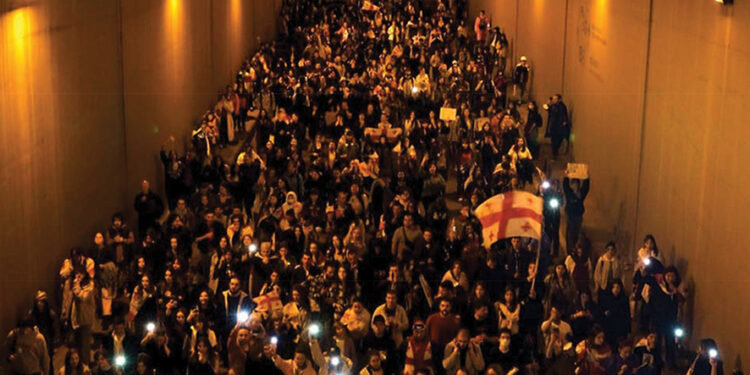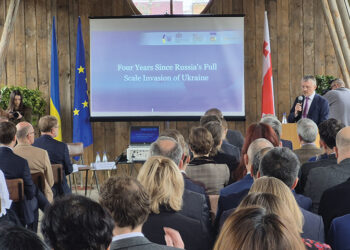From street protests to neon crucifixes, delivery men turned prophets to AI companionship—Georgia’s cinema of 2024–2025 dares to document, distort, and dream the country into new focus.
It begins with trembling hands and a slogan. “We were afraid, but we came anyway,” says a voice off-screen in Inner Blooming Springs, Tiku Kobiashvili’s tender chronicle of protest and friendship that opened the “New Georgian Films” program at DOCA Film Club on May 26—Independence Day. The date wasn’t accidental. Nor is the decision to launch a cinematic reflection of Georgia’s recent past and fragile present on a national holiday that increasingly functions less as a celebration and more as an uneasy ritual. What does it mean to be “independent” when your voice is under surveillance, your agency is under question, and your identity is split between the ghosts of empire and the mirage of Europe?
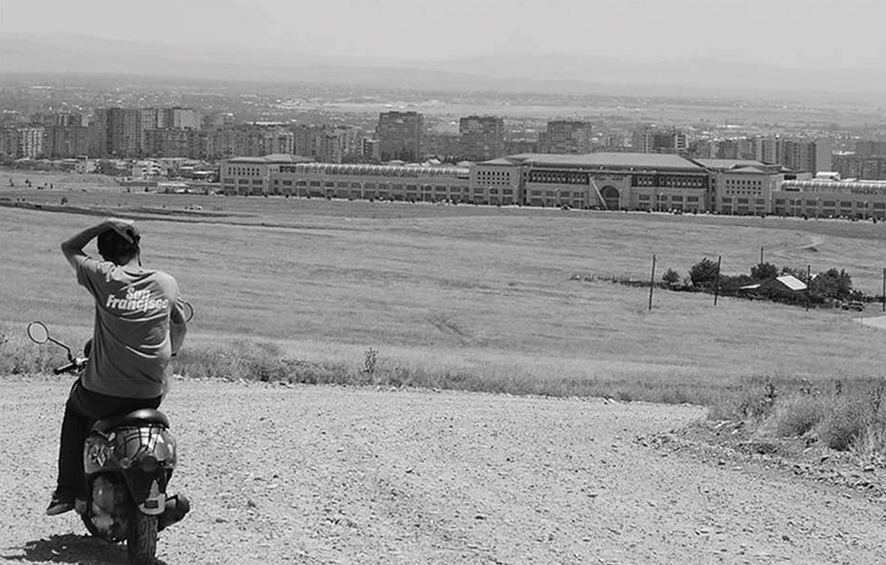
Across the next two months, the Amirani Cinema becomes not just a screening hall but a diagnostic chamber, a séance, a confessional. The films are recent—2024 and 2025 productions—but their concerns stretch both forward and back: to the archival wounds of 1991 in Limitation, the economic rot of the present in Temo Re, and the emotional futurism of Air Blue Silk. This is cinema as collective psychoanalysis.
Premiered at Berlinale, Kobiashvili’s Inner Blooming Springs functions as both witness and elegy. Set against the backdrop of the 2024 protests against Georgia’s controversial “foreign agents” law, the film eschews spectacle for intimacy. Tina, Luka, and the director herself, Tiku, resist not through grand acts but by standing together, crying together, talking late into the night. The camera lingers on faces: blurred by tears, strained by fear, illuminated by solidarity.
The film’s structure is deceptively simple, almost diaristic. But its political impact is cumulative. This isn’t a polemic—it’s a portrait of what resistance actually feels like: heavy, ambiguous, deeply personal. It suggests that political change begins not in the square, but in the quiet courage of staying.
In the Q&A that followed the screening, Kobiashvili noted: “I wasn’t trying to explain anything. I just didn’t want us to forget.” That ethos haunts the entire program.

June 9 will bring the Georgian premiere of Temo Re, already crowned a winner at the Rotterdam International Film Festival. Directed by Anka Gujabidze and based on Courier’s Tales by Temo Rekhviashvili (who stars as himself), the film is a black-and-white tragicomedy that merges autofiction with documentary grit.
Temo, a failed actor-turned-delivery man, scooters through a city of broken balconies and spiritual exhaustion. The humor is dry, almost Kafkaesque, but not cynical. Each delivery he makes becomes an existential monologue, each absurd encounter a commentary on a society where performance has replaced meaning.
Gujabidze plays with temporality through elliptical editing and the eerie stasis of monochrome—creating a Tbilisi that feels both ancient and post-apocalyptic. The city becomes a dreamspace where nothing quite resolves, echoing the social fatigue of a population trapped between historical repetition and neoliberal drift.
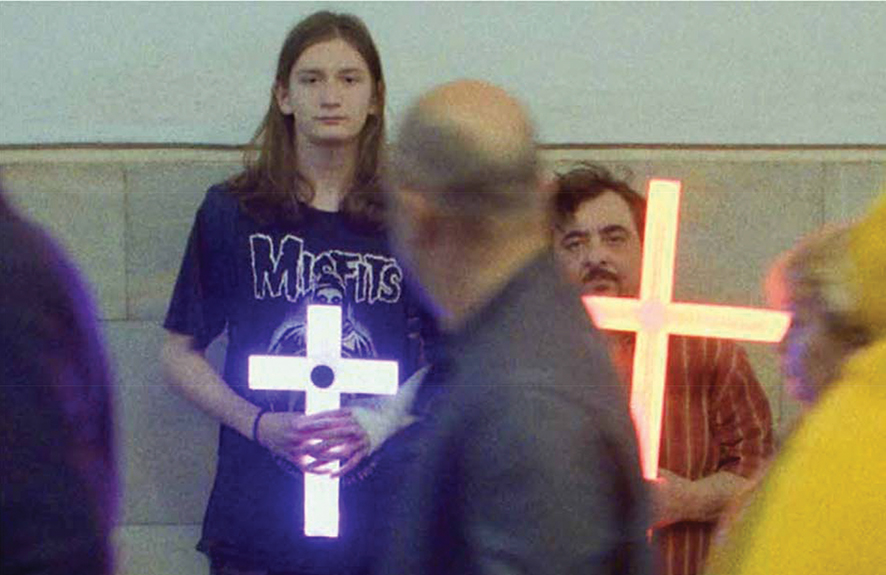
If Temo Re is Kafka on a scooter, then Holy Electricity is Pasolini in a scrapyard. Directed by Tato Kotetishvili and awarded at Locarno, this full-length feature traces two cousins who discover a suitcase of rusty crosses and transform them into neon crucifixes to sell door-to-door. The premise is absurd, but the result is luminous.
Gonga and Bart’s journey becomes a pilgrimage through Tbilisi’s spiritual decay, where churches become dollar signs and religion is just another marketing scheme. But Holy Electricity resists easy satire. Instead, it asks: what if commerce is the last place where belief still lives?
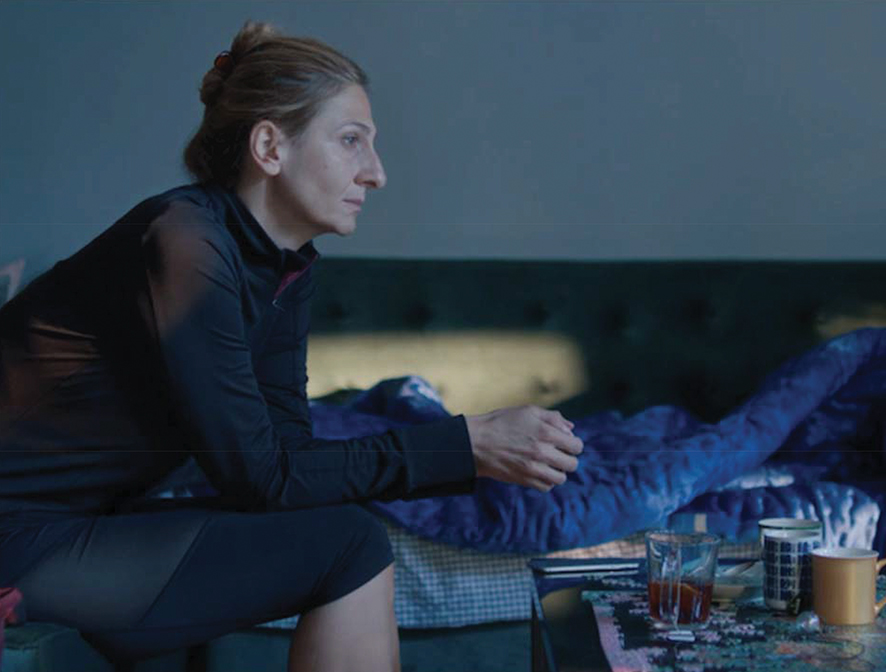
In this Georgia, kitsch is theology and scrap metal is revelation. It’s a film about the sacred profaned—and the profane, maybe, sacred again.
Irine Jordania’s Air Blue Silk takes a quieter path. Two characters, Eka and Niko, each retreat into private cocoons: Eka mourning her aunt’s suicide through voicemail messages, Niko constructing an AI companion to stave off isolation. The two barely meet—one brief contact in a world of screens and absences.
This is Georgia as interior landscape, where the political manifests not in protest but in psychic architecture. If Inner Blooming Springs is about togetherness, Air Blue Silk is about the loneliness that remains when collective hope erodes.
Its most radical gesture may be stillness: long takes, minimal dialogue, the sound of a city outside a closed window. The film doesn’t judge its characters’ retreat—it mourns it. And in doing so, it renders a collective diagnosis: loneliness is no longer personal. It’s a national condition.
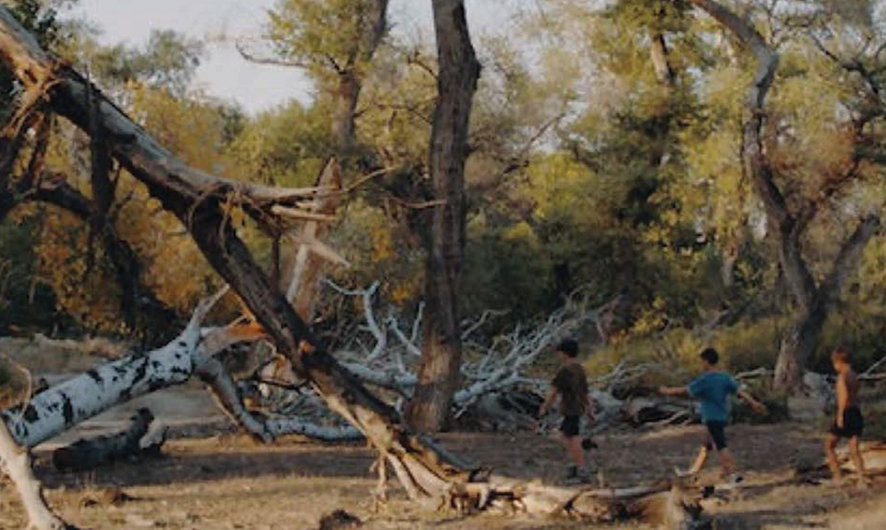
Limitation by Soso Dumbadze and Elene Asatiani offers the most overt historical reckoning. Composed entirely from found footage—YouTube clips, news broadcasts, VHS fragments—the film reconstructs the 1991 civil war between rival political factions in Georgia. No narration, no re-enactments. Just images and echoes.
But this isn’t nostalgia or documentation. It’s confrontation.
Three decades later, Limitation asks: what does it mean to rewatch your own erasure? And perhaps more dangerously: who controls the edit?
As media manipulation, historical denial, and cultural amnesia increasingly shape Georgian public discourse, this film becomes an act of resistance. It reclaims the archive from both state narrative and private oblivion.
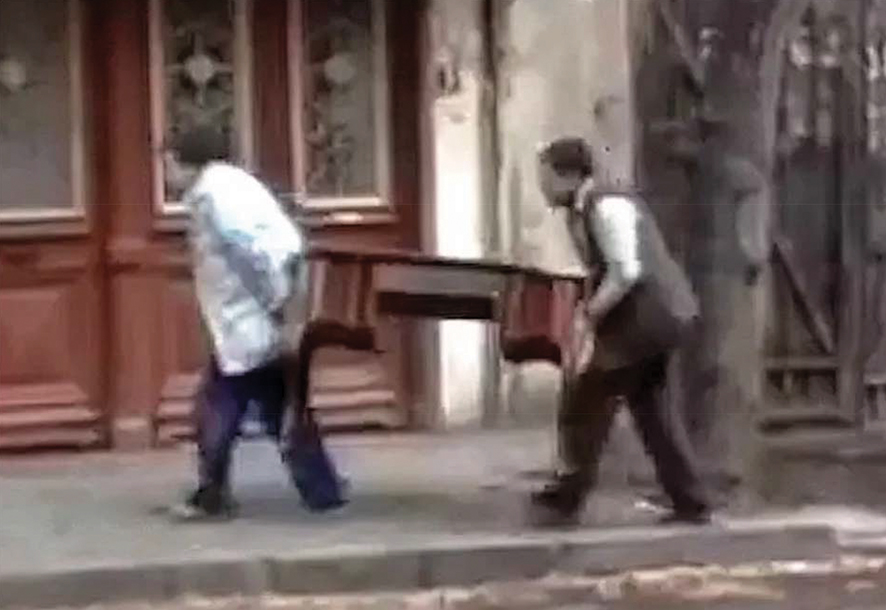
A Final Note: Time Capsules and Unearthed Futures
The program will end in late July with a return to the past—short documentaries made 15 to 20 years ago. Their titles are still to be announced, but their function is already clear. They will serve as time capsules, markers of a country that believed in something else, something still unfixed.
This backward glance is not a nostalgic one. Instead, it’s a gesture of recalibration. History, these films insist, is not linear. It loops, replays, erodes and resurrects. The future, in Georgia, is not ahead—it’s waiting to be re-edited.
The 2025 edition of DOCA Film Club’s “New Georgian Films” is not just a showcase of recent cinema—it is a curatorial act of national attention. These films demand that viewers stay awake: to memory, to contradiction, to each other. They reject both the comfort of victimhood and the delusion of resolution.
What emerges instead is a cinema of alertness: to political fragility, economic absurdity, spiritual exhaustion, and private grief. It is a cinema that stares back. Not to accuse. But to ask: are we still here?
And if so—what stories are we brave enough to tell?
Upcoming screenings continue every Monday, 19:00 at Amirani Cinema. All films come with English subtitles. Discussions with filmmakers follow each screening.
By Ivan Nechaev

